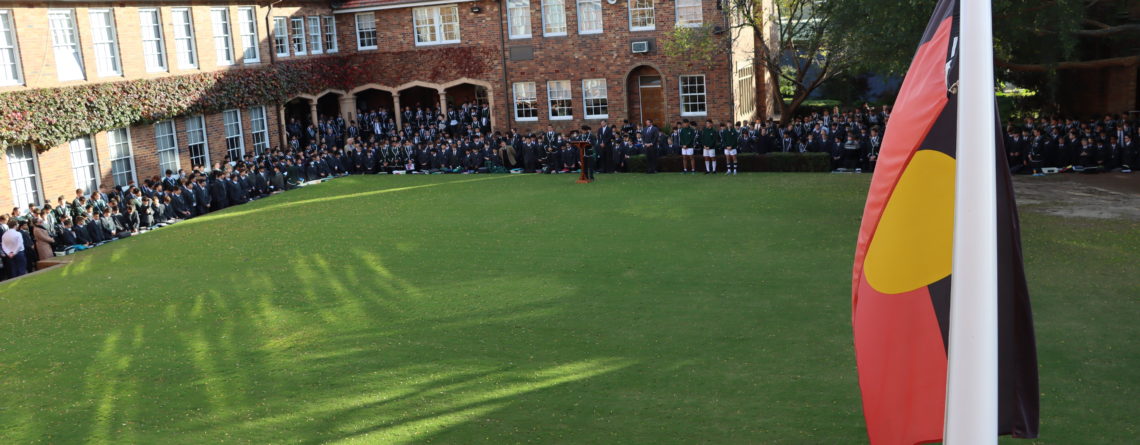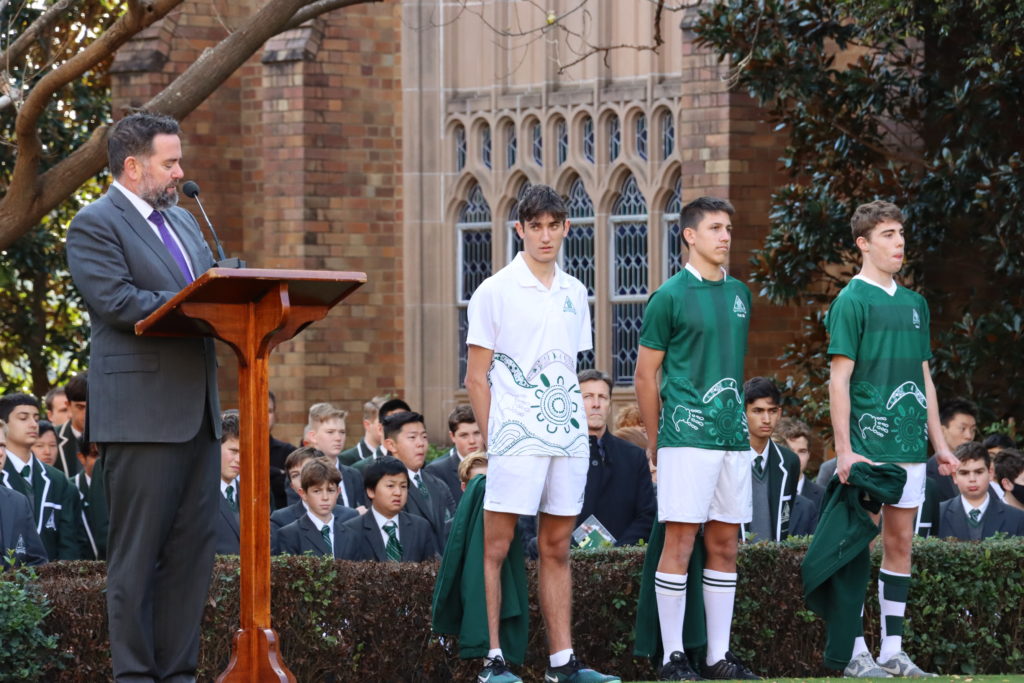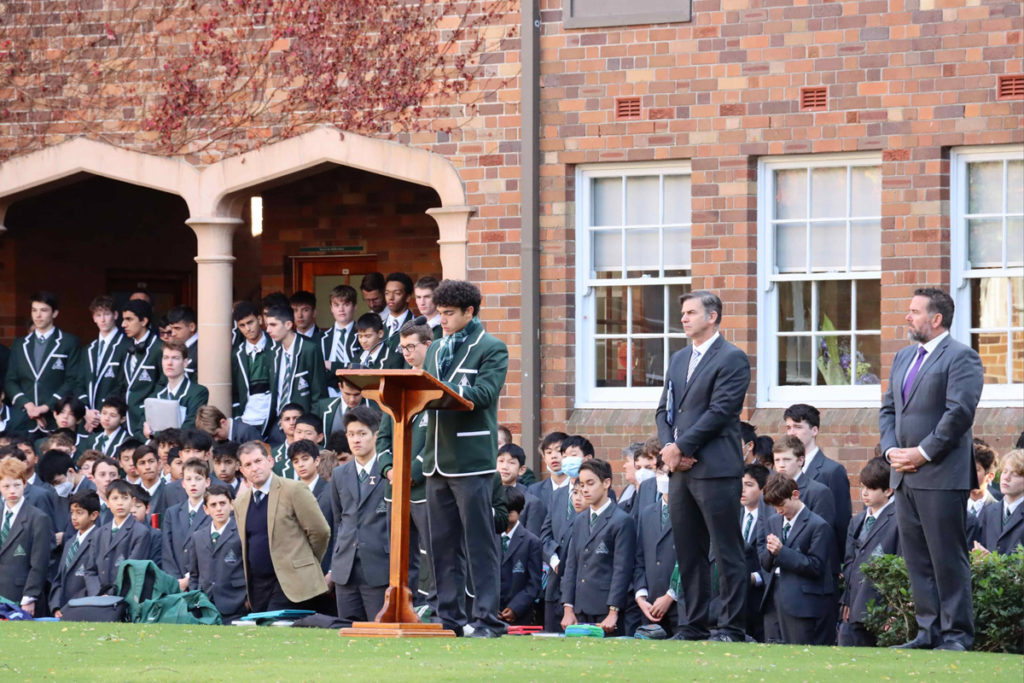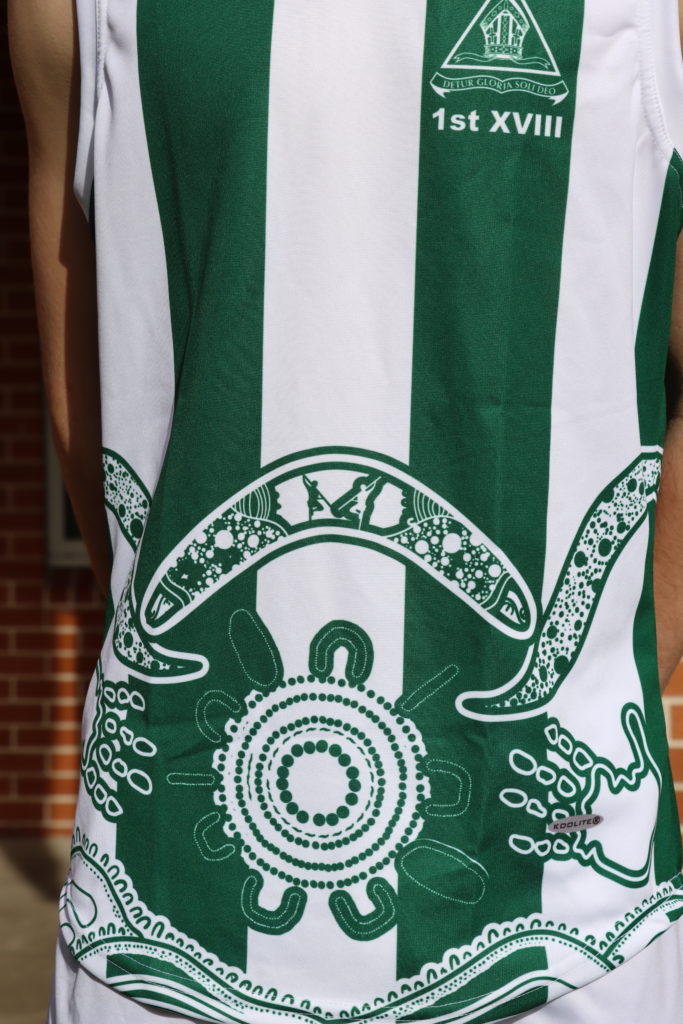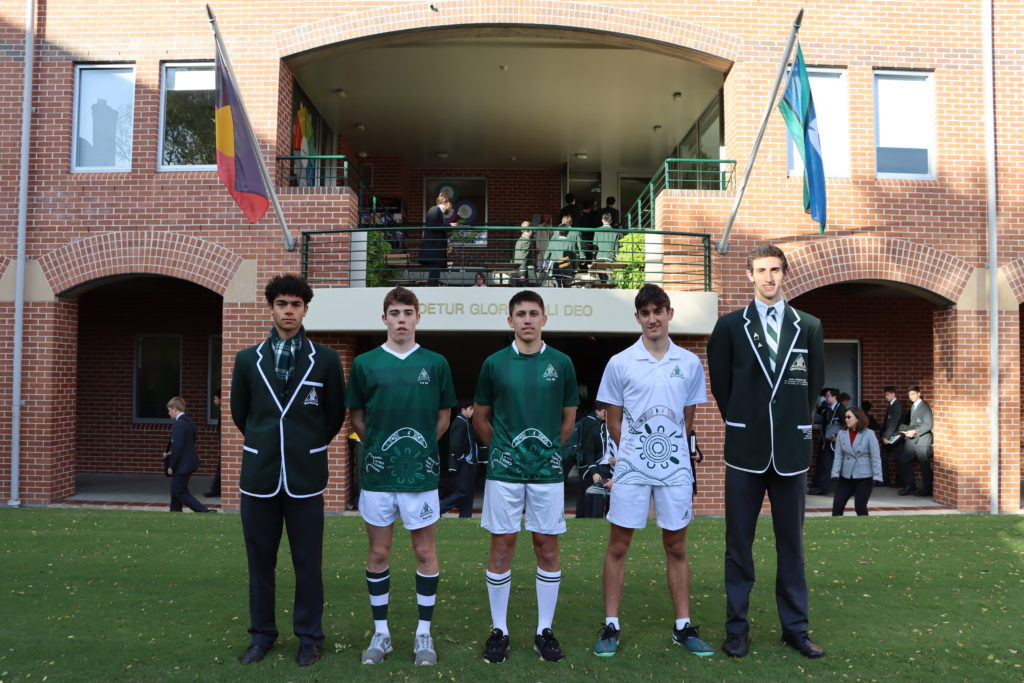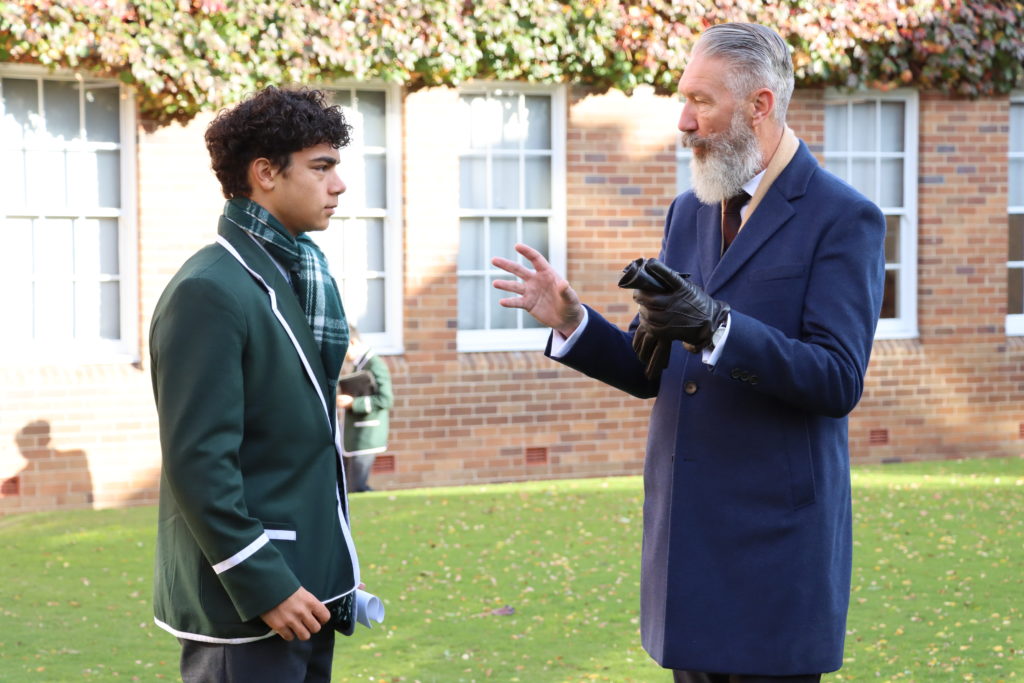Reconciliation: getting to the heart of the matter
The Head Master read the Uluru Statement From The Heart at quad assembly; an indigenous senior student made his own statement from the heart; sporting teams wore a special reconciliation strip over their hearts.
In these ways, and many others, the Trinity community marked national reconciliation week in thought, word and deed.
As the Aboriginal and Torres Strait Islander flags fluttered overhead, Head Master Tim Bowden committed the School firmly to the path of reconciliation.
He invited first team sporting captains to model their special “reconciliation round” strips, designed by indigenous Waratah and rugby sevens Olympian Dylan Pietsch, telling Trinity students: “When you wear these jerseys you will be identifying not just as members of our School, and our top teams, but also as men who commit to reconciliation.”
Bundjalung man Michael K (11Ta), whose family hails from the NSW north coast, gave an address in which he challenged fellow students to help tackle the “unfinished business” of reconciliation.
He encouraged them to act on this year’s theme to “be brave and make a change”, particularly in three ways – to tell the truth about racism, fight for justice and own our history.
“How often in a day do we hear racist slurs?” he asked. “Maybe in the playground. Maybe in public. Maybe on the sporting field.
“It may be intended as a joke or it may be the result of frustration. I have heard these comments from time to time and I’m sure you have, too.
“Although in most cases it isn’t intentional, it isn’t right. So, my first encouragement is to urge you to call out the casual and unthinking, everyday racism that remains in Australia in 2022.
“Unfair laws and policies are still in place that disproportionately target Aboriginal and Torres Strait Islander people, including laws that allow children as young as 10 to be sent to prison, and mandatory sentencing.
“It will not be long before you can vote,” he told fellow students, “and it will not be long until you can help shape the Australia you will leave to your children.
“Use your privilege and your education to make justice for Aboriginal and Torres Strait Islander peoples a priority.
“Our history has been hidden, devalued and taken from us. While there have been efforts to include indigenous history in school curricula, it is only through an acknowledgement of the past that any commitment to reconciliation can be achieved.
“We are all from different backgrounds and different parts of the world. It is important to note not only your history but others as well.
“My final encouragement is to be open to hearing uncomfortable truths about the unjust treatment of First Nations people over the past 200 years or so.
“Accepting these truths as part of our history, and a desire to strive towards making changes, are key elements of moving towards true reconciliation.”
Brad Barr, Deputy Head Master – Summer Hill, noted this year marked the 30th anniversary of the High Court’s Mabo decision overturning the legal doctrine of terra nullius (land belonging to no-one).
Australians owed a debt of gratitude to Koiki ‘Eddie’ Mabo, among many others, for challenging the legal system and winning recognition of indigenous people as the traditional owners of their land, he said in the Bulletin.
He recalled Prime Minister Gough Whitlam’s words 50 years ago that “all of us as Australians are diminished” while indigenous people are denied their rightful place in this nation.
“As Michael reminded us, we still have some way to go and, at Trinity Grammar School, we believe we all have a role to play.”

